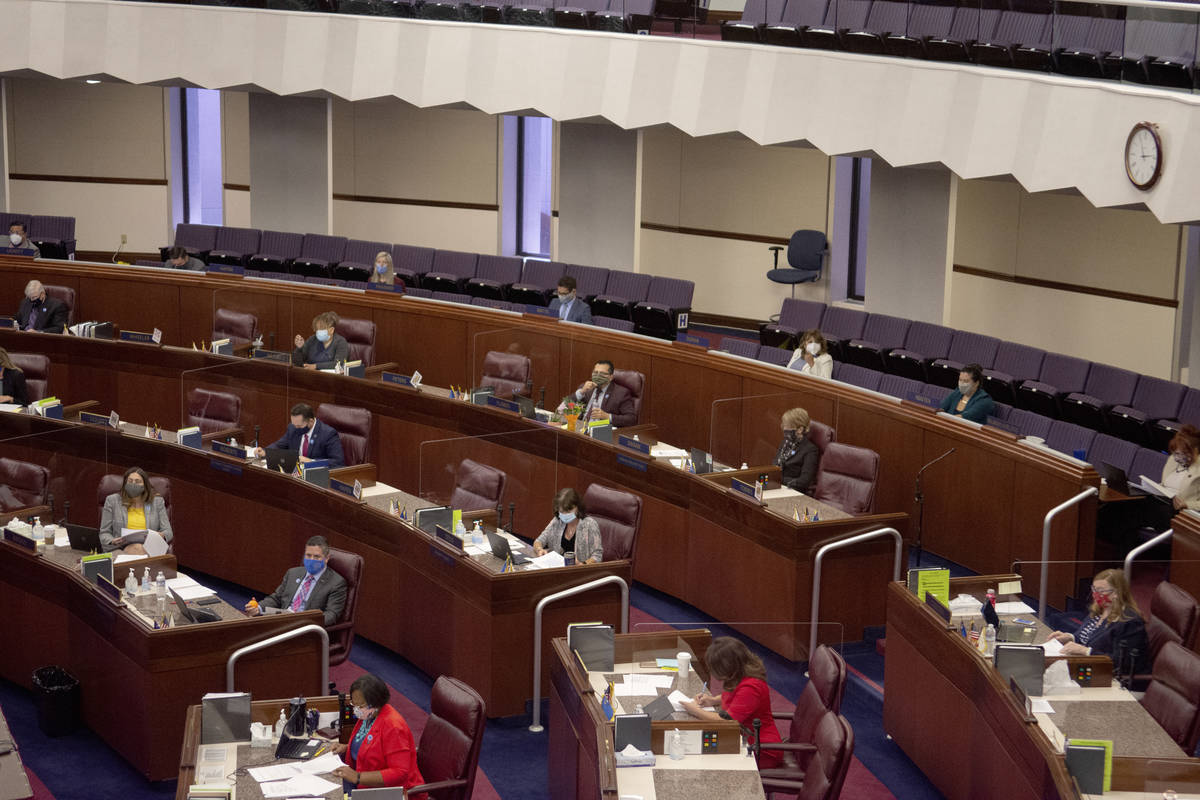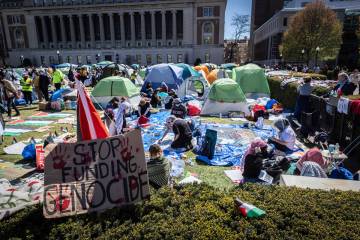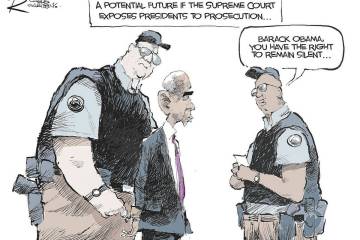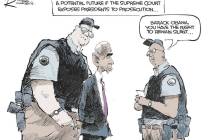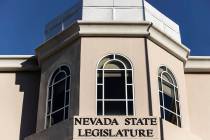COMMENTARY: When government won’t follow the rules
If government doesn’t follow the rules, why should we?
The Nevada Supreme Court’s recent decision to strike down a pair of illegally passed tax hikes is good news for those who believe in the rule of law and an important reminder of the critical role the judiciary plays in our system of representative government.
In 2019, legislative Democrats passed two bills on a simple majority vote. One extended a DMV fee that was set to expire, and another prevented a scheduled decline in a payroll tax. The Nevada Constitution, however, requires two-thirds support to pass any bill that generates “any public revenue in any form.”
There was no serious debate about whether these bills generated revenue and thus fell under the two-thirds rule — generating revenue was the entire purpose of both bills.
The issue instead was whether anyone could make sure the Democrats, who were in control of both houses of the Legislature, actually followed the rules.
That it is foolish to rely on the powerful to restrain themselves is precisely why the Framers established a system of divided government with checks and balances. And that system worked exactly as intended when, after Senate Republicans filed suit, the Supreme Court enforced the constitution and struck down the illegally passed tax hikes.
Unfortunately, there are many other areas where government officials ignore the rules imposed upon them by the people, without consequence.
For more than 400 days, Gov. Steve Sisolak has demanded that citizens comply with an unprecedented array of rules and restrictions. Nevadans were told to comply with mask mandates, business shutdowns and even restrictions on how many people they can have over for Thanksgiving and Christmas dinner.
Yet, Gov. Sisolak himself refuses to comply with the law. If the state constitution means anything, it means that one man cannot both write and enforce the law, as the governor has done since March 2020.
While there is a temporary loophole to this constitutional rule, those “emergency” exceptions apply only when immediate government action is needed to avoid certain death or severe bodily harm — such as evacuating an area due to an impending missile strike, an earthquake or other natural disaster. There is nothing in the emergency statutes that justifies Gov. Sisolak’s endless one-man rule. The governor seemingly acknowledges this fact, given his emergency orders misrepresent the relevant law and, in some areas, include outright fabrications rather than simply quoting the plain language of the governing statutes.
For instance, the governor claims that NRS 414.060 grants him the power to control the conduct of the general public when it merely authorizes him to “cooperate with” federal and other authorities on matters pertaining to emergency matters. The governor then claims that this nonexistent power is granted to him “without limitation,” but that phrase simply does not appear anywhere in the relevant statute.
With the pandemic now over, it looks as if the governor will soon return the lawmaking power back to the people’s representatives. But they have their own problems following the rules.
Nevada’s constitutional separation of powers doctrine bars legislators from “exercising any functions” related to the executive branch of government. This means those charged with writing the law cannot also work for the government agencies tasked with carrying out the law.
Yet for more than 70 years this prohibition has been ignored. The practice of allowing government employees to simultaneously serve as state legislators dilutes the Legislature’s ability to serve the public interest and leads to policies that favor government, at taxpayer expense.
That there is a conflict from this practice is undeniable. One of the most infamous dual-serving legislators, former Democrat Assemblyman Wendell Williams, openly admitted in 2003 to voting for policies that favored his government employer rather than seeking to serve the public interest.
Other Democrats described dual service as a situation “fraught with danger” that today functions as an “oligarchy.”
In practice, this means things like dual-serving legislators opposing efforts to improve transparency in government, while simultaneously voting to make information about the taxpayer-funded pensions paid to government employees (like themselves) hidden from public view.
More recently, a bill to abolish the death penalty relied on the approval of the very government agents tasked with applying it: Clark County prosecutors — who also serve in the state Senate — Nicole Cannizzaro and Melanie Scheible.
Today, there are nine government employees simultaneously serving as legislators, which includes the leaders of both the Assembly and Senate. Having the Legislature run by government employees threatens the very notion of a representative government. Where, exactly, do the people exercise their power if even the Legislature is controlled by government?
Allowing government to flout the rules with impunity is incompatible with a free society, which is why Nevada Policy filed a lawsuit seeking judicial enforcement of the separation of powers doctrine. While the legal arguments are obviously more technical in nature, the ultimate thrust of our lawsuit boils down to a simple question: If government doesn’t have to follow the rules, why should we?
Robert Fellner is vice president and director of policy at the Nevada Policy Research Institute.



